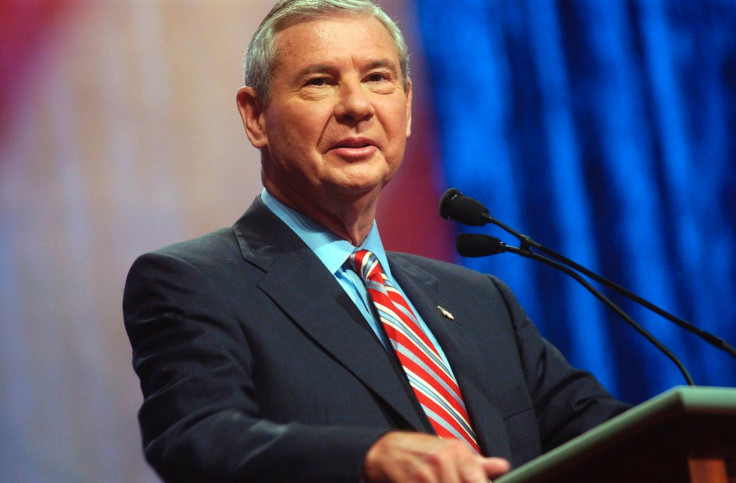US Senator: 'US Turned Blind Eye to Saudi Role in 9/11, Fuelling Rise of Isis'
Saudis have long funded violent jihadist groups, argues chairmen of 9/11 Commission

The rise of Isis has been aided by the failure of the US government to investigate the connection between the Saudi Arabian government and jihadist networks, said former senator Bob Graham, co-chairman of the official inquiry into 9/11.
In an interview with the Independent's Patrick Cockburn, Senator Graham, who chaired the Senate Intelligence Committee, said that successive administrations had failed to examine the connections between the Saudis and Sunni militant groups.
"I believe that the failure to shine a full light on Saudi actions and particularly its involvement in 9/11 has contributed to the Saudi ability to continue to engage in actions that are damaging to the US – and in particular their support for Isis," he said.
The Saudis have been accused of using Sunni militant groups as proxies, channeling money to Islamist groups battling the forces of president Bashar al-Assad in the Syrian civil war, as Sunni and Shia battle for hegemony in the Middle East.
The Shia Iranians are chief backers of Assad, and Nouri al Maliki's Shia-dominated government which collapsed following Isis' onslaught in Iraq, accused the Saudi Arabia and Qatar of funding Isis, and facilitating "genocide".
The Saudi government rejected the accusation, describing it as a "malicious falsehood".
Sir Richard Dearlove, former head of MI6, in a talk to the Royal United Services Institute this year, said that Isis triumphs in Iraq this year may not have been possible without backing from Saudi private donors.
Saudi Isis support 'not examined' by US
Senator Graham said that US intelligence failed to appreciate the growing strength of Isis until after they took the Iraqi city of Mosul on 10 June, because they did not examine the support it was receiving from the Saudis, who were treated as reliable allies.
President Barack Obama recently announced his plans to form a global coalition to defeat Isis, and sees Middle Eastern allies such as Saudi Arabia and the Gulf states to form a key part of that coalition.
Under the plan, Saudi Arabia will host a special training facility for moderate Syrian rebel fighters, pitted against both Assad's forces and Isis.
Senator Graham questioned whether the strategy could be successful without addressing the Saudi monarchy's long-term alliance with Wahhabism, a fundamentalist form of Sunni Islam that fiercely denounces Shia, and imposes a literal interpretation of Sharia law.
He said that Saudi Arabia gives support to the "the most extremist elements among the Sunni".
Of the 19 hijackers responsible for the 9/11 attacks, 15 were Saudi, while al-Qaida leader Osama bin Laden was the son of a wealthy construction magnate, who had close ties to the Saudi royal family.
The 9/11 inquiry found that al-Qaida relied heavily on Saudi charities and private donors.
It is alleged that redacted pages of the report establish links between Saudi government officials and al-Qaida.
The interview with Senator Graham appears in Cockburn's new book The Jihadis Return: Isis and the New Sunni Uprising.
© Copyright IBTimes 2025. All rights reserved.





















